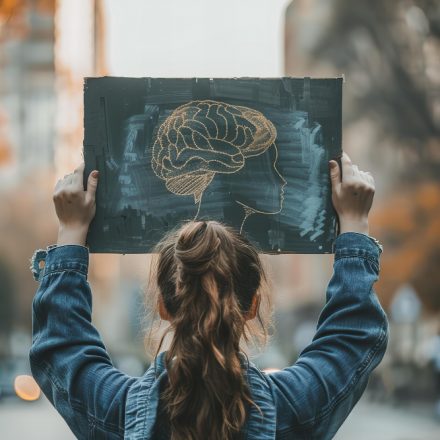
What We Really Know About Time: Scientific Facts That Change Our Perception of Reality
The Elusive Nature of Time—How Modern Physics Redefines Our Understanding of Reality, Challenges Common-Sense Notions of Past, Present, and Future, and Reveals That Time May Not Be Flowing the Way We Think It Does
Time is one of the most mysterious dimensions of existence—something we live within constantly yet barely understand. For thousands of years, humans have felt time as a steady current: the past behind us, the present as the fleeting “now,” and the future waiting ahead. But modern physics paints a much stranger picture. According to contemporary scientific understanding, time may not flow at all, and its nature might depend as much on our perspective as on any universal truth.
To our everyday intuition, the clock’s ticking and the progression from birth to death feel absolute. Yet, relativity theory shattered this comforting uniformity in the early 20th century. Albert Einstein showed that time is not universal; it stretches and compresses depending on how fast you move or how close you are to a gravitational field. A second on Earth’s surface does not equal a second orbiting a black hole or even a high-altitude satellite. Precision experiments using atomic clocks have repeatedly confirmed these relativistic effects: time literally moves faster for jet pilots than for people standing still on the ground—though the difference is so minute we can’t sense it without advanced instruments.
This revelation alone would be enough to unseat our everyday concept of time. Yet physics goes even deeper in dismantling our ordinary worldview. Relativity suggests that all moments—past, present, and future—might coexist within the fabric of spacetime. In this “block universe” model, time is more like a landscape than a flowing river. Every event, from your first day of school to the distant death of a star billions of years from now, could already exist as a coordinate in a four-dimensional continuum. The sensation of time “moving” or “flowing” could be an illusion produced by consciousness traveling through this static block.
This idea challenges not only our intuition but also our emotional experience of life. We grieve what’s lost and anticipate what’s to come precisely because we sense that time passes. But if the universe is timeless in its deepest structure, then everything that will ever happen is, in some sense, already real. Time, then, might not be an arrow but an illusion born of perception—a mental label we attach to change and causality.
From Relativity to Quantum Uncertainty—The Astonishing Scientific Facts About Time That Force Us to Reconsider Causality, Perception, and the Very Structure of the Universe Itself
Beyond relativity, the quantum realm adds another layer of strangeness to our understanding of time. Quantum mechanics describes a world where cause and effect don’t always follow the neat, linear order we observe on a human scale. Particles can exist in multiple states simultaneously until measured, and some experiments imply that choices made in the present can influence the state of a quantum system seemingly set in the past.
Take the “delayed-choice” experiments inspired by physicist John Archibald Wheeler. In these setups, the decision to observe a particle’s behavior—after it has already passed through an apparatus—appears to retroactively determine whether it took one path or many. Such findings blur the line between past and present and suggest that the flow of time might be more flexible than our intuition allows.
Adding to the puzzle, quantum gravity research—an effort to reconcile general relativity with quantum mechanics—often treats time not as a fundamental quantity but as something that emerges from more basic relationships among quantum events. Some theoretical physicists propose that time might not exist at the deepest level of reality. Instead, what we call time could be an emergent property, a statistical effect arising when complex systems interact. In this view, time is not the stage on which the universe unfolds, but part of the script written by the universe itself.
Meanwhile, neuroscientists exploring human perception of time find that our brains play a significant role in constructing temporal experience. The brain does not perceive time uniformly—it dilates and contracts depending on attention, emotion, and memory. Under stress, time seems to slow; in moments of flow or joy, it races by. This subjective elasticity hints that what we perceive as continuous time may be more like a stitched-together sequence of sensory moments. The physics of time and the psychology of time are united in revealing that what feels fixed and absolute may be an intricate illusion.
If relativity shows that time is relative to motion and gravity, and quantum mechanics suggests that time’s order may dissolve at the smallest scales, then the combined picture is both astonishing and bewildering. Causality—a cornerstone of human logic—is no longer guaranteed at the deepest levels of physical reality. The very notion of a single universal “now” evaporates.
This evolving scientific understanding forces us to reconsider not only physics but philosophy. What does it mean to exist in a reality where all points in time are equally real? Are we participating in a cosmic tapestry where every possible moment is eternally woven, or is the act of observation itself continually creating the illusion of unfolding time?
Perhaps the truest statement we can make about time is that it is inseparable from our consciousness of it. Modern science reveals no absolute clock ticking behind reality—only a complex interplay of motion, matter, and observation. Time may not be the universal river we once imagined but the oceanic depth of existence itself, with each moment rising like a wave before dissolving back into the timeless continuum from which it came.
In the end, the more we learn about time, the less we can claim to truly know it. Yet in that mystery lies a profound beauty: to question time is to question the foundation of reality—and perhaps to glimpse that beyond this shifting illusion of moments, something eternal and unchanging quietly endures.









